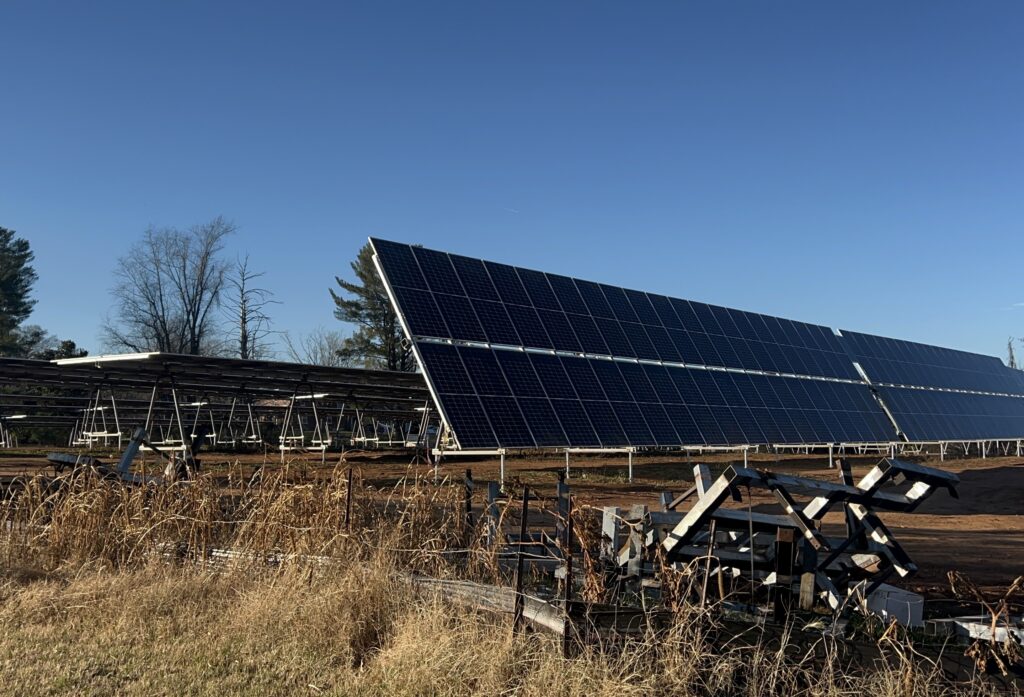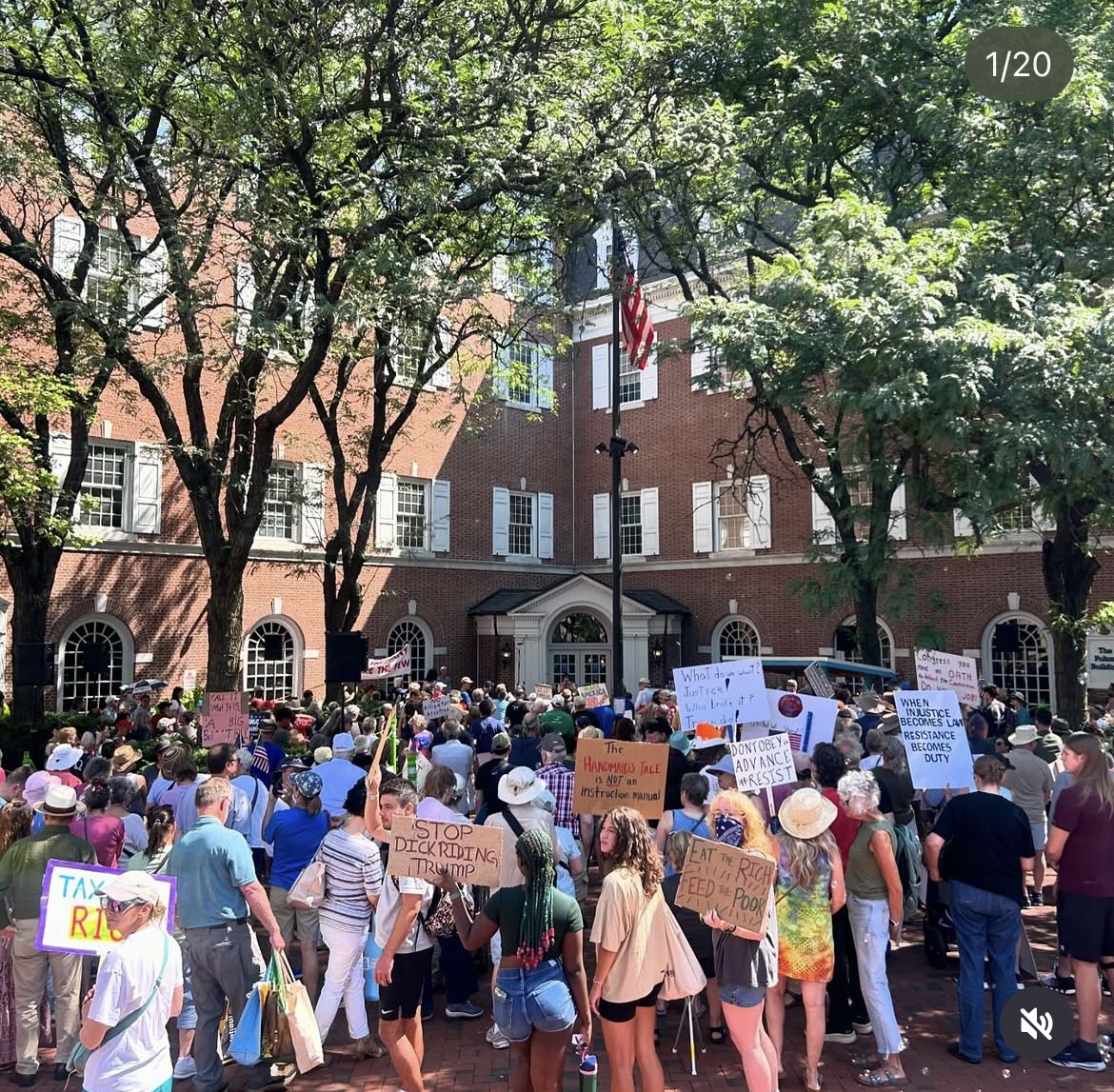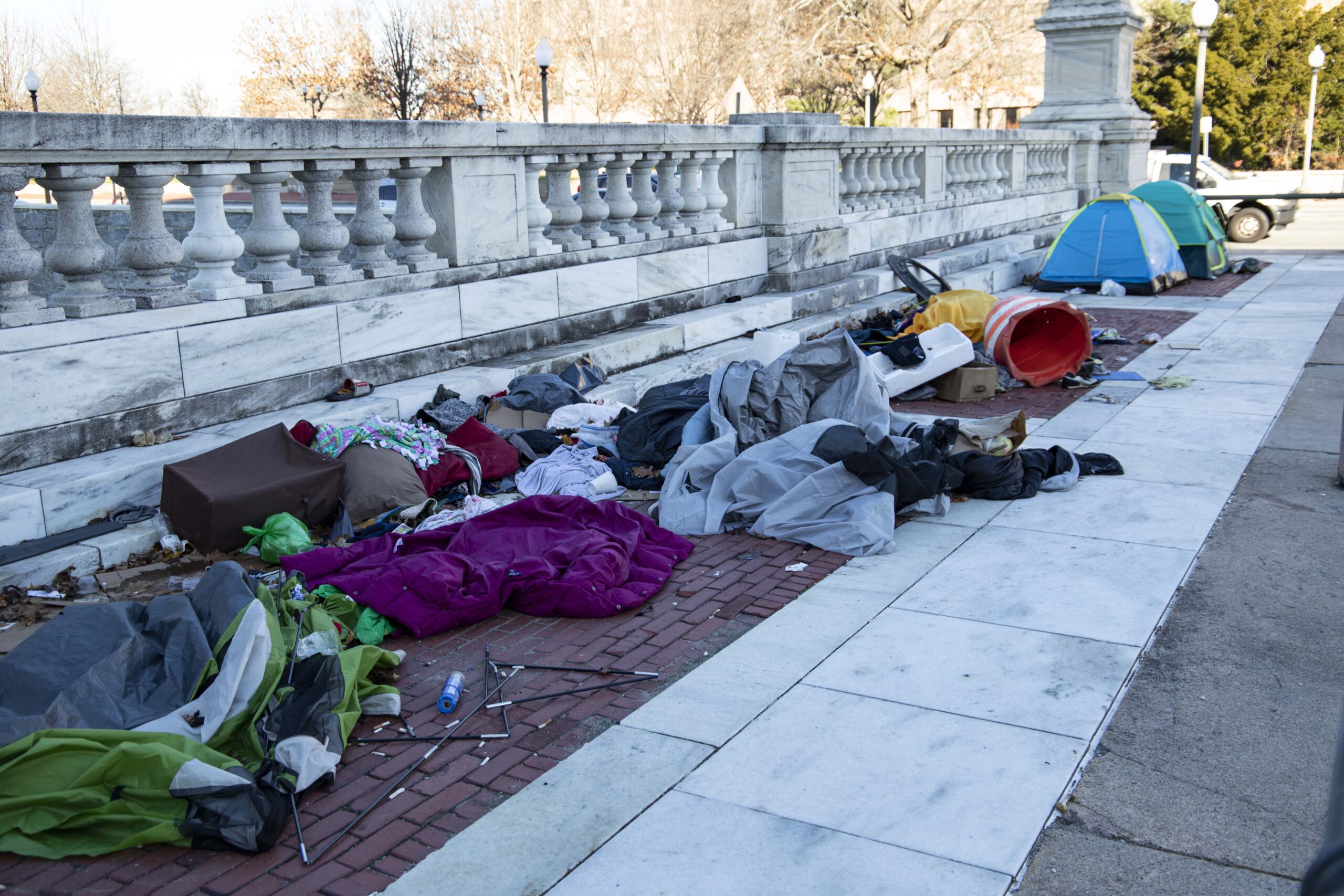(HENRY COUNTY, Va.) — Nestled snug in the heart of the Appalachian Mountains, Southwest Virginia once dominated the coal mining industry. Dating back to the 18th century, underground mines made the area a powerhouse, employing thousands of residents and bolstering the state and national economy.
However, in the 1980s, the coal industry disappeared, and now, hidden behind the rolling mountaintops and tree canopies are countless abandoned coal mines, gray and bleak. What was once the most influential region in the state diminished into the most underdeveloped. Just five hours from the nation’s capital, neglected furniture and textile factories line the backroads and residents struggle to access cell service and broadband. And more than half of Southwest Virginia’s households “earned less than the basic cost of living.”
“Even today, it’s difficult to get businesses to come here and put down roots and stay,” said Heather Evans, professor of politics at the University of Virginia’s College at Wise. “And so a lot of people feel just simply left behind by their government. And they connect that to politics.”
The district voted Democratic for many years, powered in part by the United Mine Workers of America. In 2011, after the coal industry had declined by more than half, Democrat Representative Rick C. Boucher lost his Congressional seat after 27 years in office. The region began to see the Republican party as their new beacon of hope and today holds the state’s heaviest Republican presence.
Republican results may be attributed to the population’s demographics. “Our rural, white voters in particular, tend to be more religious than the average Virginian and are more likely to have a lower level of educational attainment than the other parts of Virginia,” said John McGlennon, professor of government at the College of William & Mary.
Yet, 14 years later, economic underdevelopment remains an unsolved problem. In the 2024 election, the district re-elected Republican Representative Morgan Griffith for the eighth time. Donald Trump also swept the district for the third presidential election in a row, taking up to 85% of votes in some counties.
Trump supporter Josh Landon, 22, a native of Henry County, believes that the new administration will “protect American jobs, decrease crime, and be fair to the people who have come here legally.”
Regarding economics, Landon expects a more affordable cost of living. “We will drill more oil domestically and be energy independent once again, thereby lowering gas prices, energy prices, and potentially consumer product prices as well.”
Lower prices may sound enticing for Southwest Virginia residents with incomes below the Virginia average, however economic promises are not exclusive to the Republican party. Both parties “say they want to make investments in job opportunities to attract new industry to Southwest Virginia,” said McGlennon.
While the state overall remains a blue stronghold, voting for Democratic presidential candidates since 2008, Republican Glenn Youngkin was elected governor in 2021, following two consecutive Democratic governors. Youngkin, along with others in the Republican party, promises to fight for the revitalization of abandoned coal land.
In 2022, Youngkin sealed a deal with Coronado Global Resources to invest almost $170 million to increase production at the company’s Buchanan Mine Complex in Buchanan County. Coronado Global Resources produces high-quality steelmaking coal to the largest mining fields in the world, and its deal with Youngkin promises more than 180 jobs in the region.
In August, Youngkin and Griffith supported the Abandoned Mine Land Revitalization Grant of $1.2 million, aiming to enhance development in neglected coal fields in Wise, Tazewell, Dickenson, and Buchanan counties. Projects in each county are specifically designed to meet the area’s needs.
Meanwhile, Virginia Democrats see a different path to economic development in Virginia, with the installation of solar farms making its way into the Southwest.
Two Democrats in Virginia State Congress introduced legislation regarding “shared solar programs,” establishing 50 megawatts for Appalachian Power Company and granting inexpensive solar power access to utility customers who cannot afford their own solar panels.
Organizations unaffiliated with politics are also working to strengthen solar power in Southwest Virginia as a replacement for the coal industry. In 2021,The Nature Conservancy and Dominion Energy partnered to “develop one of the first utility-scale solar projects on former surface mines in the coalfields of Southwest Virginia.” The project was set to power 12,500 homes at peak output, provide local tax revenues, and create clean energy jobs.
Solar farms have grown significantly across Southside Virginia, and expanding those farms into the Southwest may finally provide an economic future for the area, McGlennon said. “And that may produce the revenue that those areas have been starved of for the last several years so that they can renovate their school buildings, provide a richer curriculum, help kids think about the possibility of getting college degrees.”






